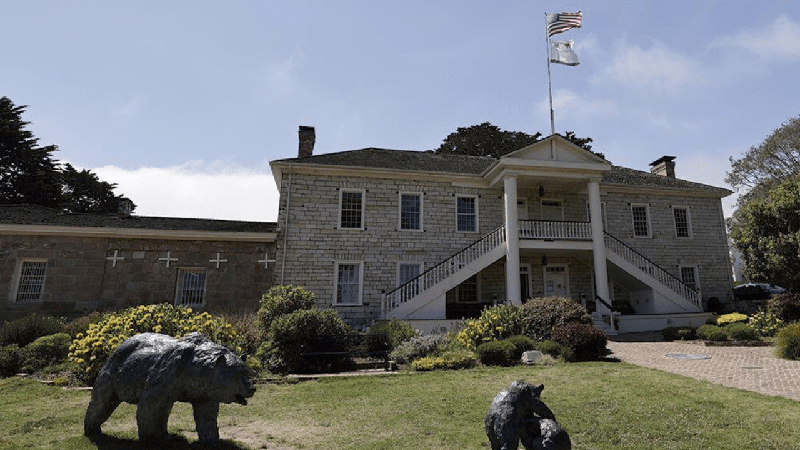
The California Constitution was written, in English and Spanish, at Colton Hall, at the time the largest municipal building west of the Rockies. Daniel Dreifuss / Monterey County Weekly
Pam Marino of Monterey County Weekly reports that the city government there is grappling with a unique problem: How to provide access to the places that make Monterey “the most historic city in California.”
Her tale begins in Colton Hall—where the State of California was officially born when delegates from throughout the territory gathered at a constitutional convention in 1849. Merino writes that Colton Hall was, at the time, the largest municipal building west of the Rocky Mountains.
“The building served the delegates well, allowing them to retreat in smaller committees down the steps to school rooms below, and to meet as a large group upstairs. They were tasked with debating and ultimately deciding to create the state of California. The men that signed the constitution on Oct. 13, 1849, could not imagine that their creation would become a place of dreams and innovations, a trendsetter and leader of industry and culture, and what is now the largest economy in the U.S. and the fifth-largest in the world.
“California officially became a state almost a year later, on Sept. 9, 1850. Today, to walk up the same steps and across the same wood floors of Colton Hall is to connect with the very history of Monterey and California. Spending time inside the state’s own ‘room where it happened’ brings to life a community of 173 years ago, a diverse collection of people from all over the world and all walks of life, where both Spanish and English were spoken as a matter of course in daily life—the state’s constitution was written in both English and Spanish.”
Colton Hall was once open to the public and staffed by city employees. But when COVID 19 cratered the local tourism industry and the city’s revenues plummeted, those positions were eliminated, and the old building is now only open on weekends.
There is a somewhat similar situation at Pacific Biological Laboratories—better known as “Ricketts lab.” The two-story wooden building a few doors down from the Monterey Bay Aquarium is where the pioneering biologist Ed Ricketts, fictionalized by John Steinbeck as “Doc” in Cannery Row, did his groundbreaking work.
Learn more here: Monterey is the caretaker of some of California’s most important history. Can the city make that history more accessible to the public?